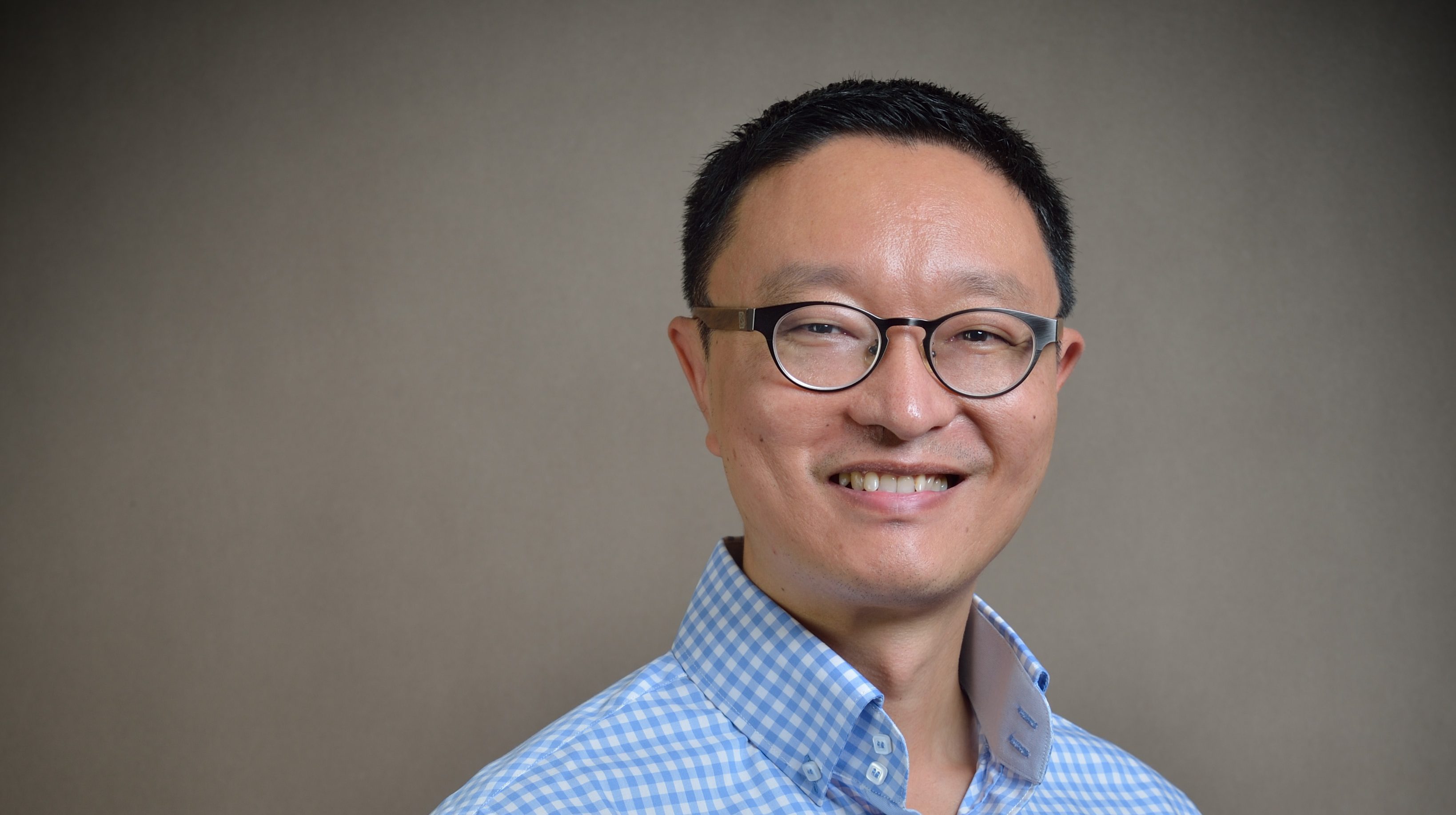Charles Bark (EM.05), Aging Better with AI
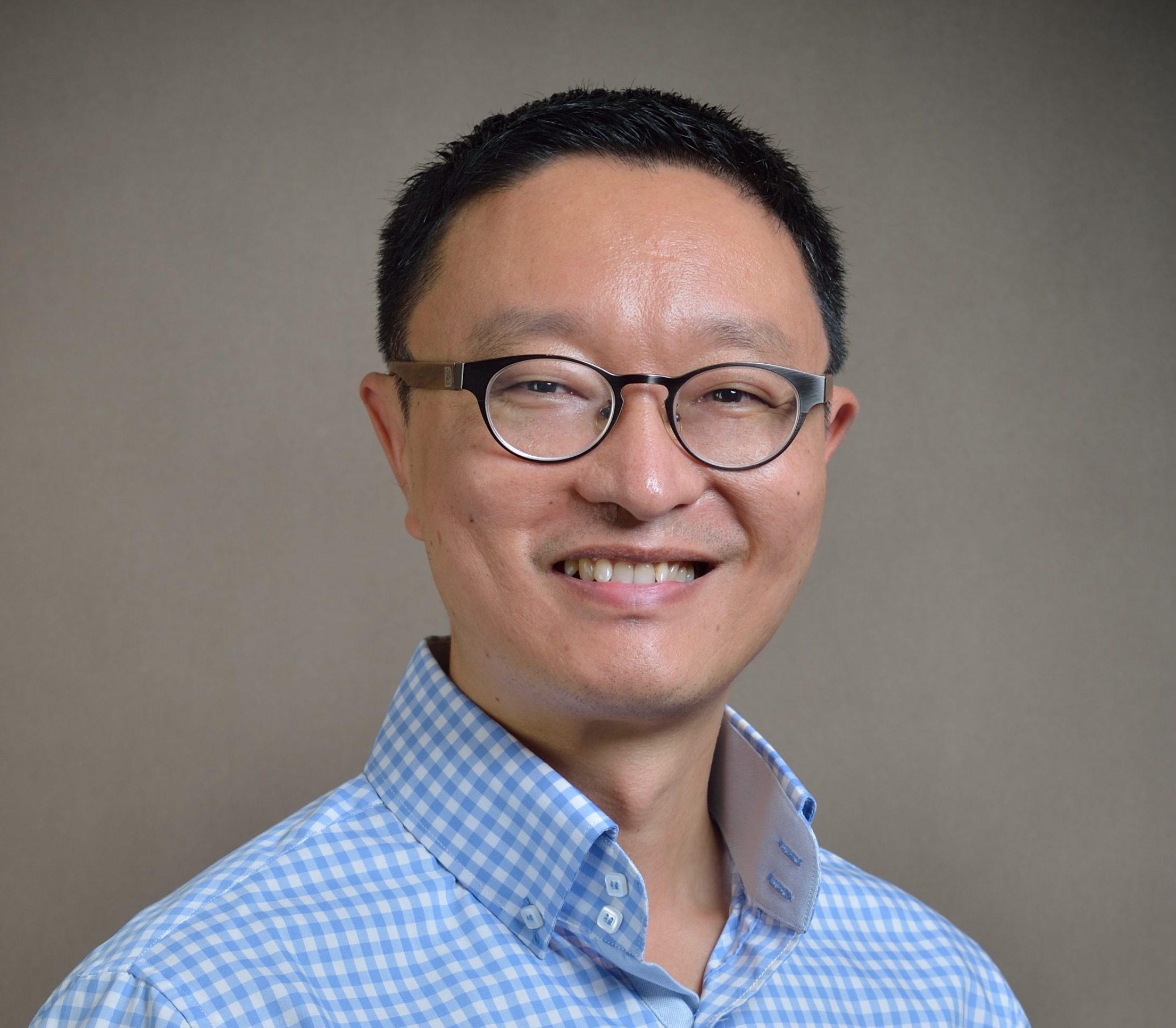
Prevention is better than cure. That’s the motto of HiNounou, a « digital twin solution » created by Charles Bark (EM.05) to monitor the health status of seniors from home. Read more about a serial entrepreneur divided between France and China.
He drew his business idea from an unfortunate personal experience. In 2013, while living abroad, Charles Bark felt helpless when his retired mother fell at home. Since then, he has envisioned a technology that allows “fragile” seniors to perform a battery of exams from home to prevent rather than cure. A way to monitor their health through an app connected to family, healthcare professionals, and assistance services.
Named HiNounou, his company has been developing in Asia for over a decade. Charles Bark has recently returned to France to conquer the silver care market in Europe and Africa with a host of innovations and a slew of international awards in his luggage.
“I felt at home”
Son of an APHP doctor, grandson of a Korean pharmacist, the serial entrepreneur fell in love with China in 1996. That year, inspired by the writings of American author Pearl Buck, he embarked on a backpacking tour of Asia for “10 days, 3000 kilometers.” When he arrived in Qingdao from Incheon, Korea, with a Lonely Planet guide in hand, it was love at first sight. “Getting off the boat, I felt at home. It was very special.”
Originally from Neuilly-sur-Seine, Charles Bark worked for international groups as an innovation computer engineer before venturing into entrepreneurship. Winning a competition securing him a place at CNRS (the French National Center for Scientific Research), he worked on a project for learning the Chinese language through a 3D gaming system – which would soon turn into a company named ChinPASS. “It’s called gamification. You take a taxi, you go to a restaurant, you do everything in 3D on the app. You learn in situ by playing,” he explains.
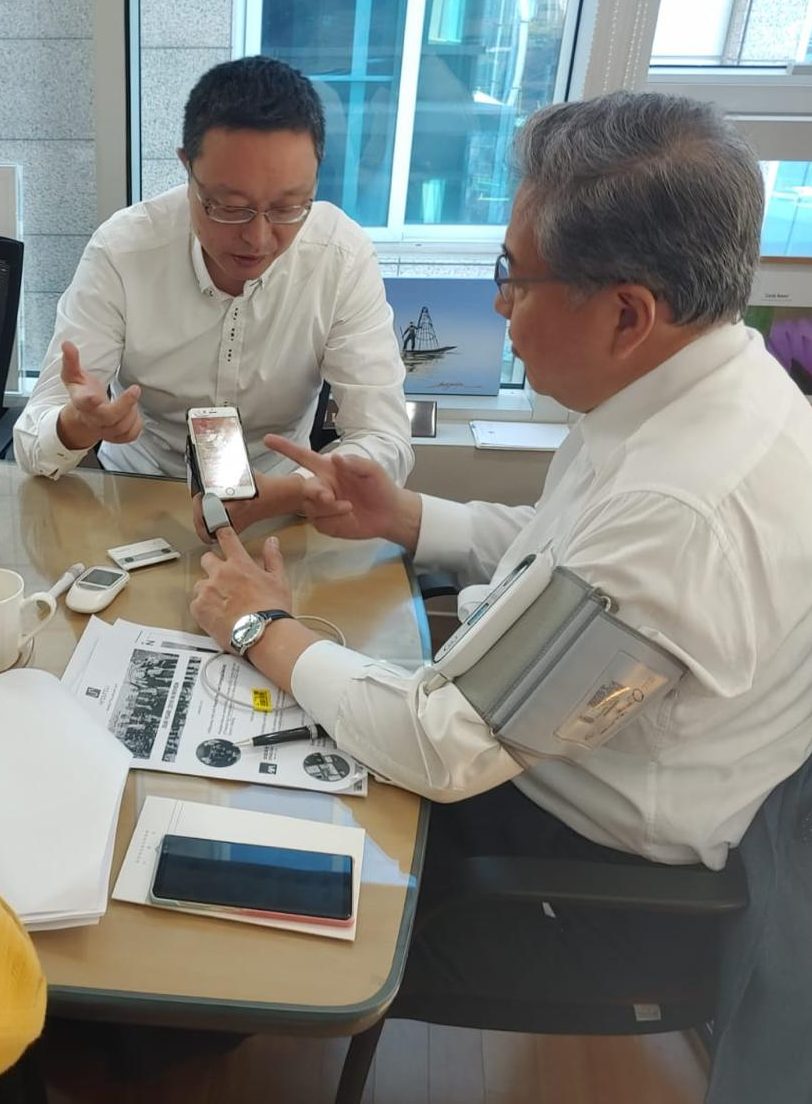
He joined HEC’s Consulting for Change program in partnership with the University of Oxford in 2003. French history specialist, humanist essayist and Honorary Professor Theodore Zeldin became his mentor. “He is still on the board of my company today. He is a great thinker,” the entrepreneur says. After obtaining his degree, Charles established himself in the Middle Kingdom to develop ChinPASS. “I created my vehicle to go to China to live my dream. 60% of the Fortune 100 bought our services to train their executives to learn Chinese.”
After ten years of R&D and commercial development in Shanghai, he became accustomed to local business practices, miles away from French customs. “There, deals are negotiated after work in the evening. It’s more interpersonal; it’s common to drink together to get to know each other.”
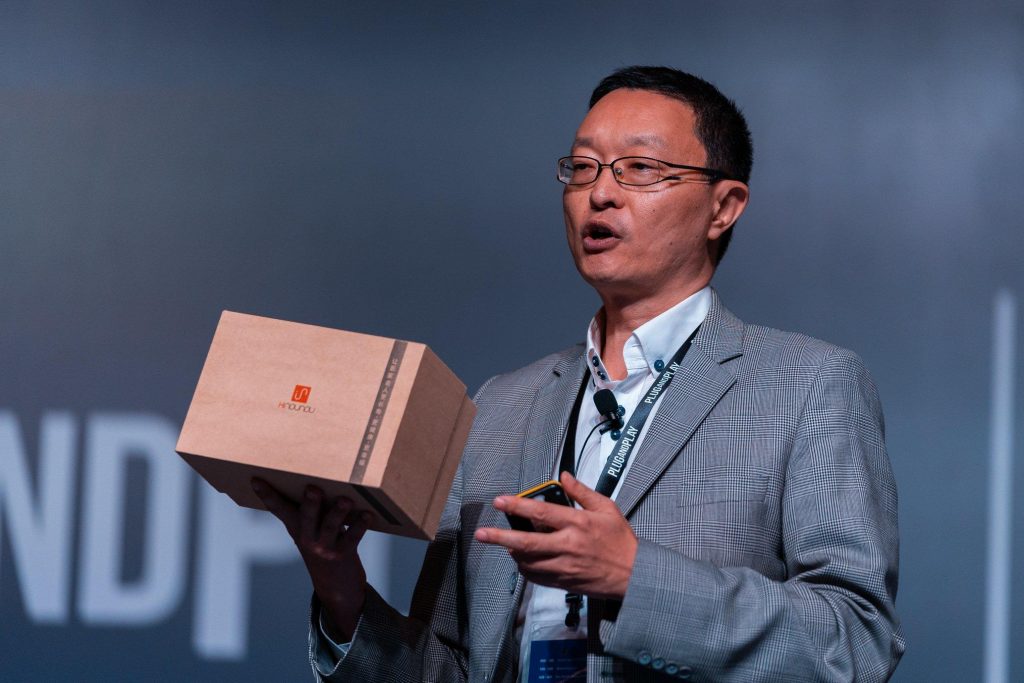
“How to take care of our elderly parents?”
Then comes a day in 2013 when he calls his mother, who was retired in France, to check on her. “She tells me everything is fine. I later learned that everything was not so good because she had fallen and went to the hospital. I had two shocks. I realized that our parents lie to us so we don’t worry. Then I wondered, ‘How to take care of our elderly parents when we live far away?’ The idea of HiNounou was born.
Blood pressure monitor, oximeter, and an environment sensor created with Saint-Gobain: HiNounou offers a kit of medical tools for seniors to perform physiological measurements at home. The data is analyzed by an AI and presented on the application in an easily readable form: graphs, indicators ranging from green to red, etc. In the red zone, alarms notify caregivers of the risk level of cardiovascular disease, diabetes, and hypertension, and an instant messaging system connects the patient with their general practitioner or assistance and insurance services such as AXA or the Chinese insurer Pingan.
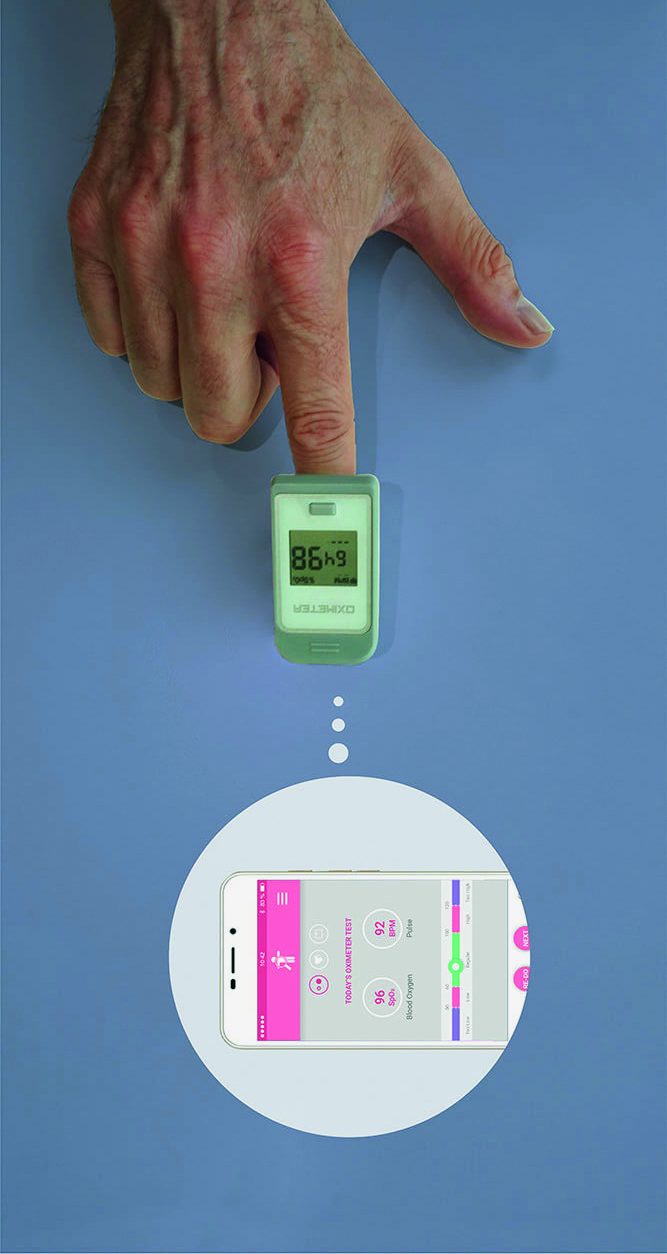
Distributed by hospitals, home care companies, and telecom operators who have integrated the app on their mobiles, the Asian version, now established in thirteen countries, cross-references the collected data with the DNA profile. “We perform sequencing that allows us to identify the hereditary risk associated with the ten chronic diseases that most affect seniors: cardiovascular diseases, diabetes, or hypertension.”
In January 2018, the technology even caught the attention of President Emmanuel Macron visiting the SOHO 3Q incubator in Beijing. “He asked us to come for a face-to-face meeting,” recalls the entrepreneur. “He was really interested in the issue and how to solve it through AI.” Combining genomic and metabolic information, this approach has earned the company numerous awards including the Innovation Award at the World Economic Forum and the Global Innovation Award as part of the “Healthy Aging Decade” at the UN in 2022.
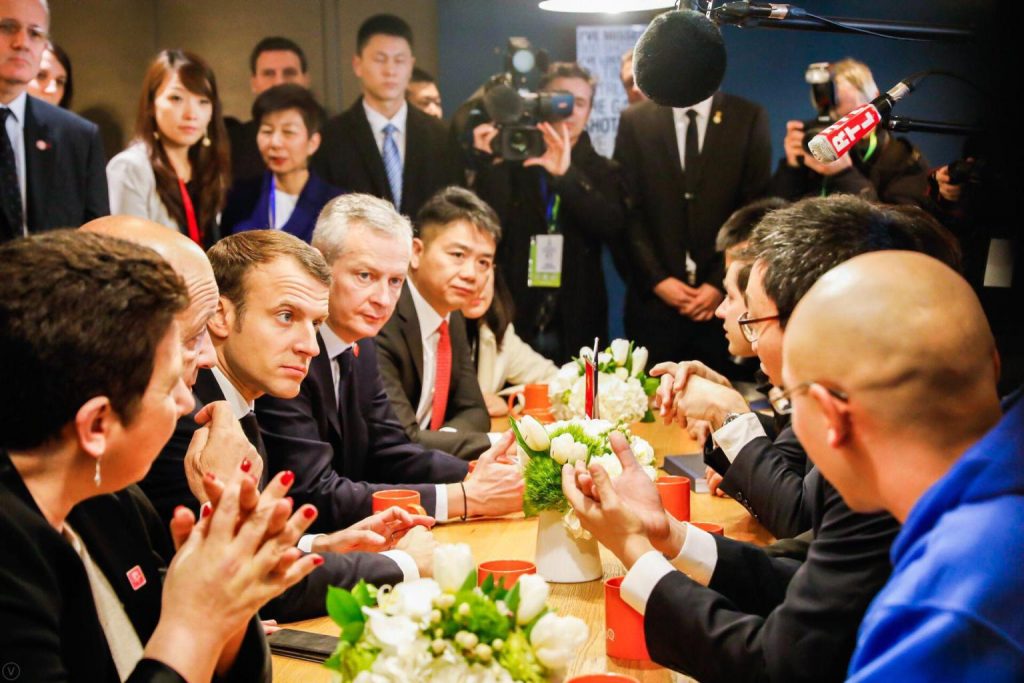
A fall prevention solution
Since his return to France, Charles Bark has been working with nursing homes groups like Maison de Famille, home care actors, and has engaged in experimentation with doctors from APHP and Bordeaux University Hospital. In addition to HiNounou, he is deploying a connected fall prevention detector that provides a 365° infrared vision of a senior’s room through an application.
“The infrared technology protects people’s privacy. We only see the body temperature,” indicates Charles Bark, also CEO of Sensio France – the company that markets the fall prevention solution. Depending on the person’s profile, falls can be anticipated.” Currently, 11,000 rooms in Europe are equipped with this technology. “We align ourselves with the French government’s anti-fall plan, which aims to reduce the number of deaths from falls in people over 65 by 20% in three years.”
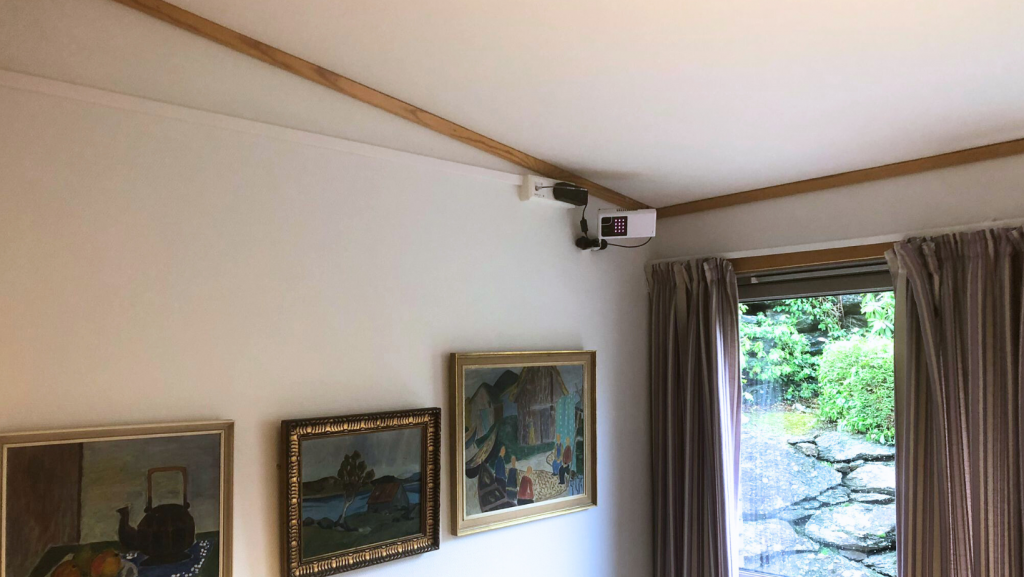 The fall prevention detector from Sensio, currently installed in 11,000 rooms in Europe.
The fall prevention detector from Sensio, currently installed in 11,000 rooms in Europe.
Always between two trips, Charles Bark operates an international network with the goal of turning his solution into “an AI platform with the best technologies for healthy aging and the prevention of chronic diseases.” Invited to present his innovation, he returned to the UN headquarters in New York in 2023. “My big dream is to make HiNounou a gamechanger in AI for healthy aging globally!” He is now launching into the African market, “a continent where 20% of the world’s population has access to only 3% of medical resources.“
Published by Estel Plagué


